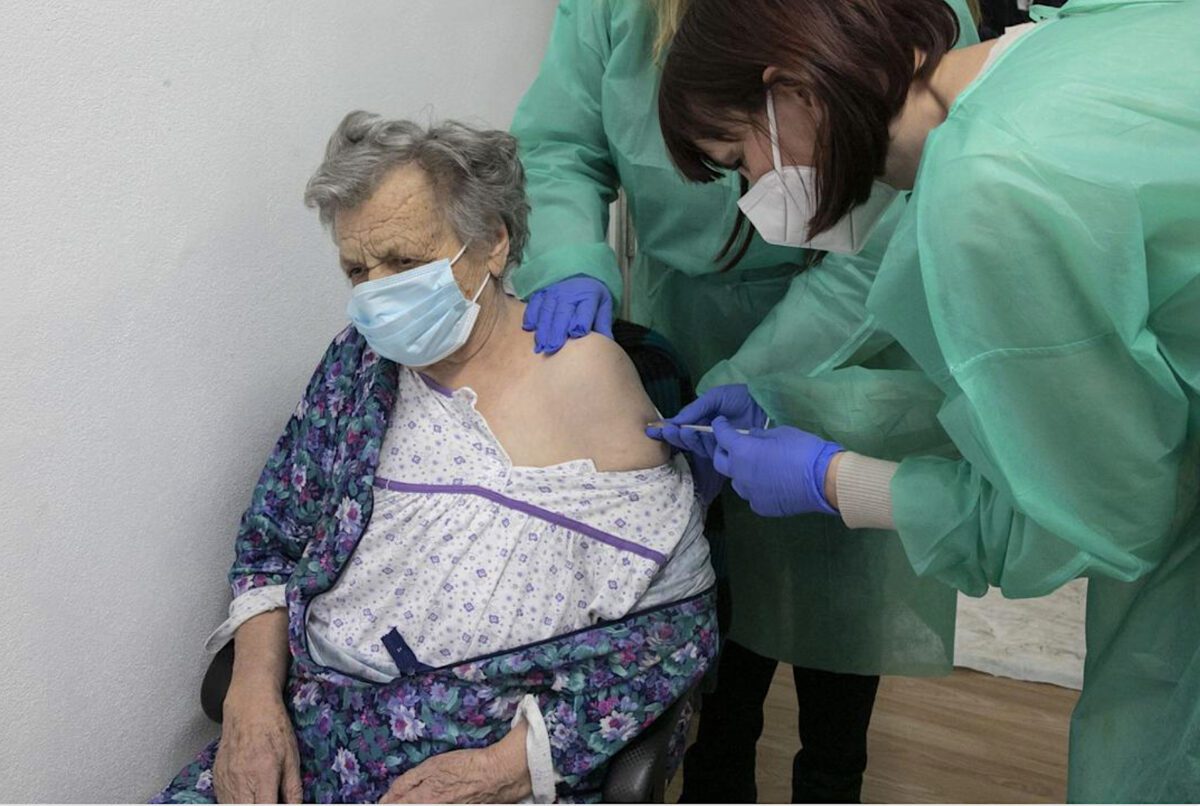Just getting people to listen is the first step when it comes to conversations about vaccines. This was the simplest message – and perhaps the strongest – from a media event which Internews hosted for journalists in Eastern Europe as a part of a series of global and regional dialogs supported by the Sabin Vaccine Institute. The host was Internews Pandemic Media Mentor Artyom Liss and those who attended were journalists and partners in the region who are grappling with vaccine storytelling for audiences who have tuned out.

Pix credit/Internews/IFRC
How do you cover COVID-19 vaccines for people who don’t believe in the pandemic – nor, indeed, in the vaccines?
For many journalists across Eastern Europe and in former Soviet states, this is far more than just an academic question.
Vaccination rates among their audiences remain stubbornly low. Take Ukraine, for instance. 67% of its population remain unvaccinated*. In neighbouring Moldova, this number is 62%* Compare this with the UK, where 72% of the population has received two doses or, say, the US, where the vaccination rate is well over 60%*.
So what’s holding people back? Andero Uusberg, psychologist and Scientific Advisor to the Government of Estonia, says that many “… feel that the train of the society is leaving them behind. So trusting members of the mainstream, including the media, is very difficult for them, and that [makes them] vaccine-hesitant”.
Mr. Uusberg expressed this view at an online Media Dialog, which Internews hosted to bring journalists persepctives from the field of risk communication and behavioral science. Its purpose was to help journalists find new ways to write about the COVID-19 pandemic and the protection offered by vaccines.
Melanie Powell, from the Psychological Support Centre of the International Federation of the Red Cross and Red Crescent Societies (IFRC), gave reporters this advice:
“In your stories, it’s useful to say how it’s normal to be hesitant about new things. And now the vaccine hesitant person is interested: “Oh, are you saying I’m normal, that’s the first time I’m hearing this, let me read the rest of the story.”
This simple and actionable advice comes straight from the training course which Ms. Powell developed for the IFRC. It originally targeted health workers, but the event helped journalists see how it could be helpful for them, too, to listen before they write.
Internews offered two versions of the Vaccine Media Dialogue: one in English, targeting countries of Eastern Europe, and one in Russian, for journalists in former Soviet states. The unrivaled star attraction of the second event was a discussion of conspiracy theories. Aleksandra Arkhipova, an anthropologist who studies conspiracy theories explained why even well-educated people (including those with a medical background) can be hesitant about vaccination.
In her view, this is to do with the general sense of “dissent”. In much of the region, people feel little allegiance towards their governments – despite opinion polls indicating trust in government.
Refusing the vaccine, then, can function as “taking an oppositional stand” against government decisions. This is similar to what specialists observed at the height of the Soviet rule, when the intelligentsia, the Soviet intellectuals, often refused to vaccinate their children, despite sound scientific advice from the state medical system. Their reasons were more political, then medical: these people did not want to “play along” with the government, whatever the game. For the nearly 100 content creators who attended the two events, these dialogues offered a chance to discuss the epidemic in a “safe space”, free from editorial deadlines or production constraints.
Many of the journalists who took part are now applying for the grant support program, which Internews is rolling out. Reporters are competing for funding which will help them create innovative, engaging and scientifically correct articles about the COVID-19 vaccines.
The winning group of journalists will also receive mentorship and consultations from members of Internews’ pandemic media mentors and other editorial professionals
As journalists across the region look for new ways to explain the complex issues related to vaccination programs, the Vaccine Dialogs are serving as a source of knowledge and ideas; and the joint grant support program will help turn these ideas into reality.
*These vaccination figures are for mid-February 2022. Click here to track vaccination trends by country.
The Sabin Vaccine Institute is supporting the translation of Internews’ Let’s Talk Vaccines course to French and the hosting of regional media dialogues on COVID-19 vaccines in Eastern Europe, West Africa and South Asia.